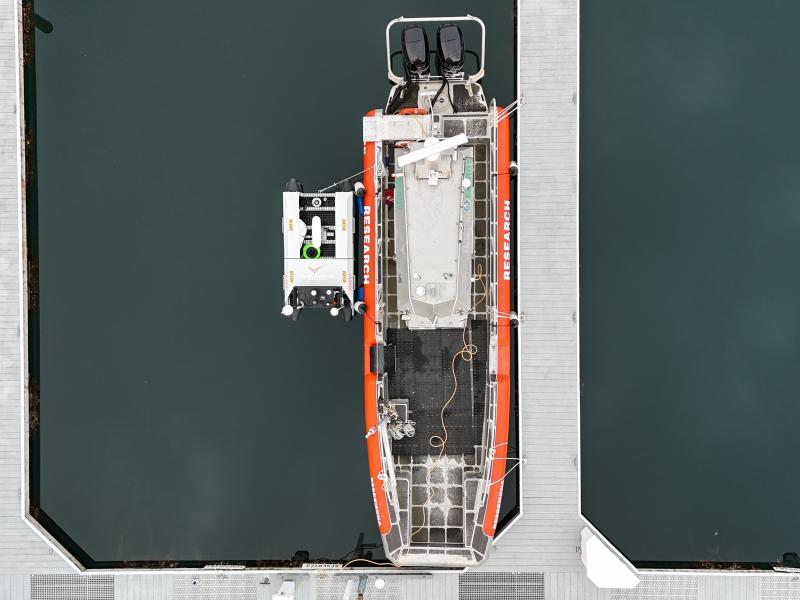
Autonomous Surface Vehicle
A flexible, mobile platform for oceanographic and environmental monitoring
United States

The autonomous surface vehicle, Jonesy, provides a customizable platform for sensor testing, persistent environmental monitoring, and autonomy research.
(Photo by Shanon Dell | Pacific Northwest National Laboratory)
In April 2022, PNNL-Sequim acquired an autonomous surface vehicle (ASV) to support research in persistent environmental monitoring, marine energy harvesting, and coordinated autonomy research. Since then, the self-navigating catamaran named Jonesy has been used to autonomously detect eel-grass beds, autonomously deploy floating marine environment sensors, study multi-system autonomy with unmanned aerial vehicles, inform environmental modeling with real-time data, and demonstrate novel autonomous docking methods.
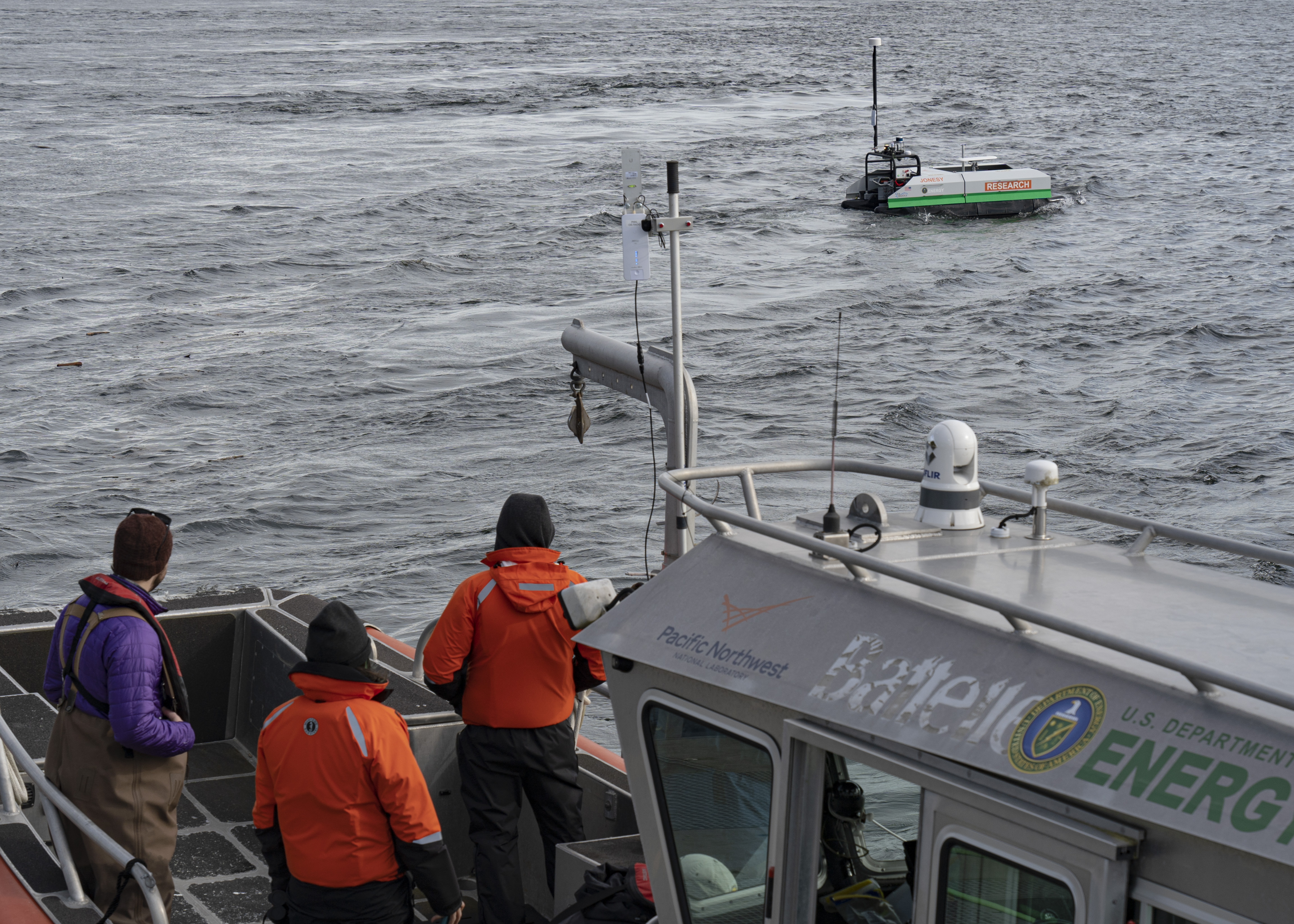
Jonesy measures 3 meters long, has a top speed of 6 knots, weighs 800 lbs (unladen), has roughly 1 meter of open deck space, can support payloads of up to 150 lbs., and has an endurance of around 14 hours while underway. The electronics and onboard autonomy have been completely customized by PNNL scientists and can be readily modified to accommodate nearly any sensor payload. Furthermore, these payloads can be integrated directly into onboard autonomy to support real-time, adaptive decision-making, and control. Alternatively, the system can be operated manually either via local communications or via cellular communications. A digital twin of Jonesy and simulated environment of nearby waterways have been created to simulate missions before or during execution, and to provide a full bench-to-bay development environment.
ASV Jonesy Supports a Variety of Projects
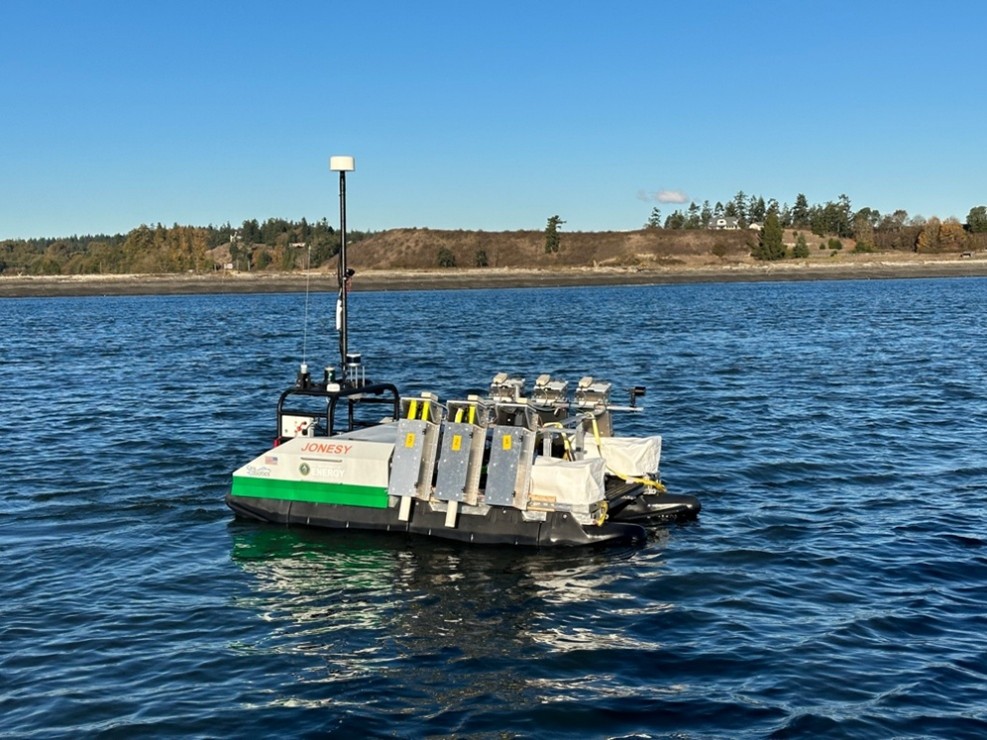
- Continuous, real-time sensing of environmental variables with autonomous systems to improve ocean modeling in high-energy and brackish ecosystems.
- Design and demonstration of a floating marine energy and autonomous docking platform to support continuous autonomous vessel deployment.
- Demonstration of coordinated autonomy between an ASV and unmanned aerial vehicle.
- Autonomous deployment of drifting marine sensors (microFloats) developed at University of Washington’s Applied Physics Lab to characterized marine energy sites.
- Autonomously detecting and mapping of carbon dioxide uptake in shallow, coastal ecosystems with the ASV Jonesy.
Publication
Simulation of an Autonomous Surface Vehicle with Colocated Tidal Turbine
Specifications
| Physical | |
|---|---|
| Design | Catamaran, differential drive |
| Length | 3.12m |
| Beam (width) | 2.36m |
| Draft | 0.1m |
| Weight in Air | 800kg (2 batteries), 912kg (4 batteries) |
| Payload capacity | 150 lbs (2 batteries), 38lbs (4 batteries) |
| Performance | |
|---|---|
| Maximum Speed | 6 knots (3.09 m/s) forward, 4 knots (2.06 m/s) reverse |
| Maximum Rated Sea State | 3 |
| Battery Configurations | |
|---|---|
| 2x 3500 W-hr | ~6 hours @ 4 knots |
| 4x 3500 W-hr | ~14 hours @ 4 knots |
| Sensors and Hardware | |
|---|---|
| GNSS | Dual-antenna, redundant, RTK-corrected |
| IMU | 6-DOF |
| Meteorological Station | Wind speed and direction, air temperature, relative humidity |
| Echosounder | Water depth |
| LiDAR | Forward-looking for obstacle avoidance |
| Pan Tilt Zoom Camera | 360 swivel on-board vision |
| Stereo Camera | Depth perception, AI integration |
| Water Quality Measurements | Salinity, temperature, pH, dissolve oxygen, and more |
| Acoustic Doppler Current Profiler | Current velocity and direction at binned depths down to 30m |
| Winch | Lowering sensors to 50ft with power and data |
| Radio | Dual frequency for local vehicle communications |
| Cell Modem | Beyond line-of-sight vehicle communications |

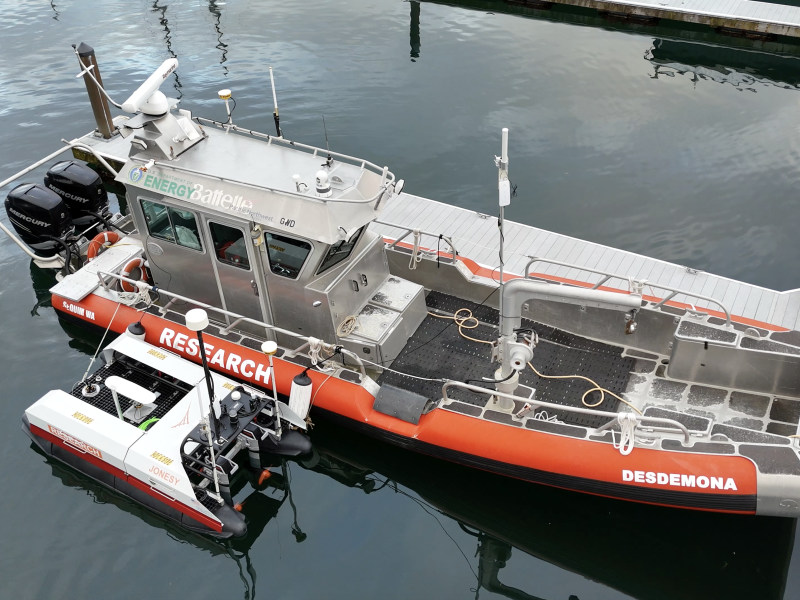
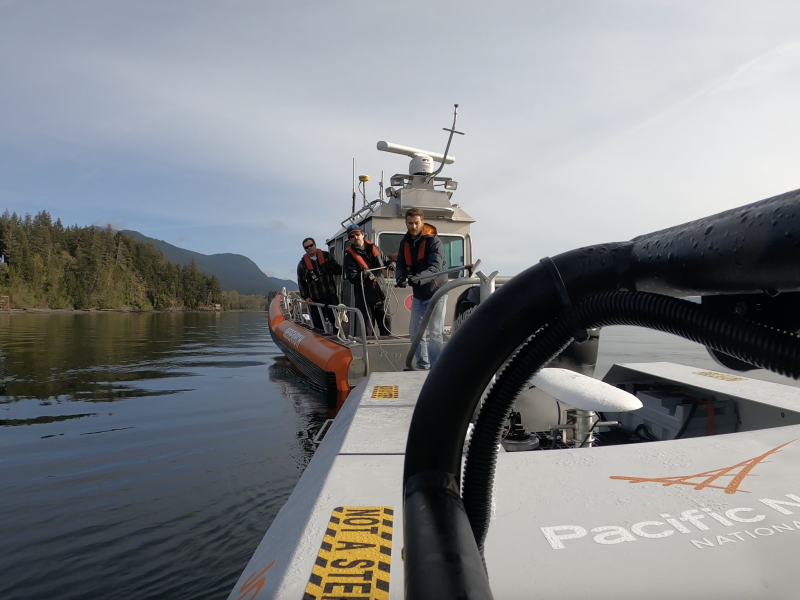
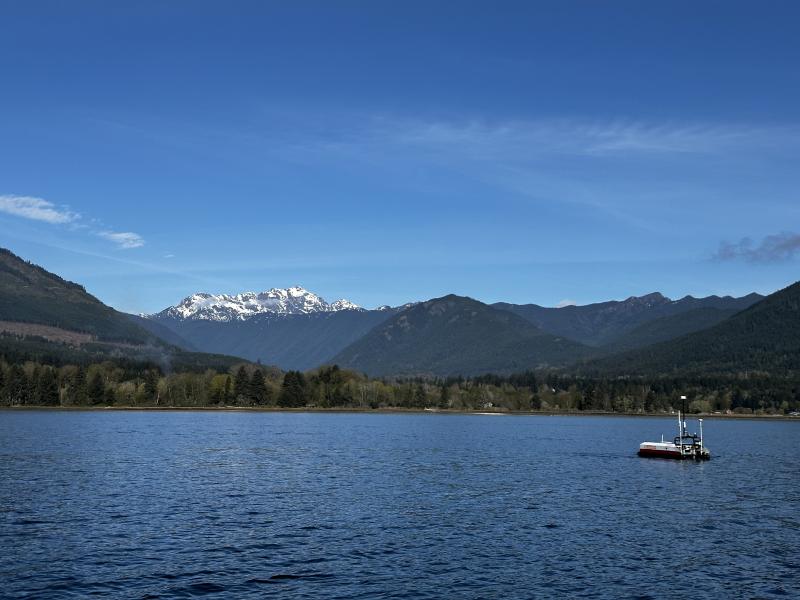
The ASV is available to support programmatic needs. Please reach out to asvjonesy@pnnl.gov to find out more about this resource.